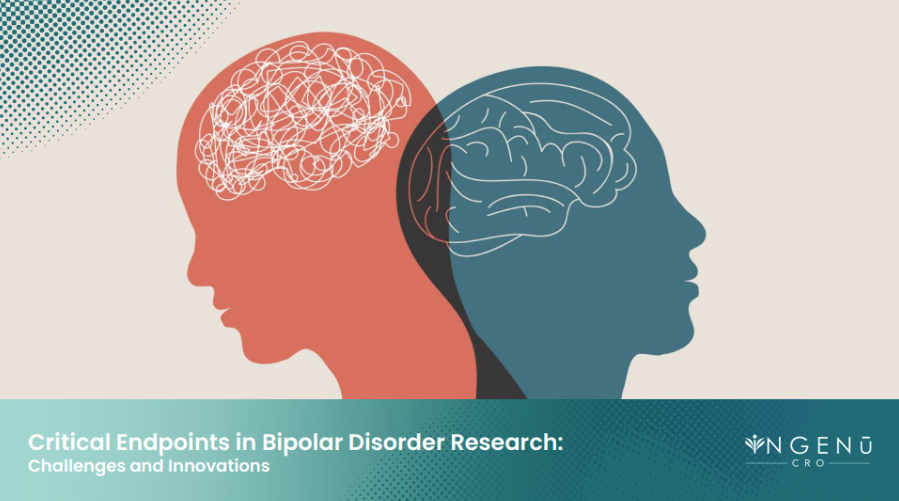Download our whitepaper,
"Critical Endpoints in Bipolar Disorder Research: Challenges and Innovation"

What's Inside:
- Key FDA-Approved Pivotal Endpoints for Bipolar Disorder
Clinical Trials. - Optimizing Recruitment with Adaptive Trial Designs for Bipolar Disorder.
- Comprehensive Analysis of FDA-Approved Bipolar Disorder Drugs.
- How Diagnostic Criteria for Bipolar Disorder Have Evolved and Impact Research.
- Overcoming Common Pitfalls in Bipolar Disorder Clinical Trials.
- And additional insights to drive your trial's success.
Access your complimentary whitepaper today:
Bipolar Disorder
Throughout the 20th century, research into bipolar disorder expanded, leading to a greater understanding of its biological underpinnings and treatment options.
The modern conceptualization of bipolar disorder began with the work of German psychiatrist Emil Kraepelin in the late 1800s. Kraepelin differentiated bipolar disorder from other types of mood disorders by observing the cyclical nature of mood episodes. He coined the term "manic-depressive illness" to describe the condition, emphasizing its episodic course.
iNGENū’s team of researchers and clinicians is dedicated to advancing bipolar disorder research. Through innovative trial designs and a patient-centered approach, we work to accelerate the development of new treatments that could offer improved options and outcomes for those affected by bipolar disorder.
50%
of people with Bipolar Disorder have a co-occuring mental health condition, like anxiety or substance use
70%
of people with Bipolar Disorder respond well to a combination of mood stabilizers and psychotherapy
BPD
affects Men and Women equally, although the type of Bipolar Disorder varies between genders
Our clinical team has over
120
years of combined clinical trial experience